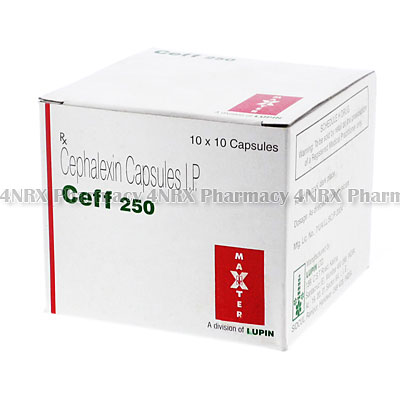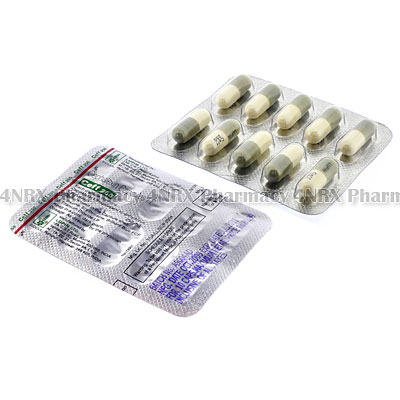 |
Home  Infection Infection  Ceff (Cephalexin Monohydrate) Ceff (Cephalexin Monohydrate) |
|
|||||||||
|
Ceff (Cephalexin Monohydrate)
What is Ceff (Cephalexin Monohydrate) used for? Ceff (Cephalexin Monohydrate) is a type of antibiotic which is effective in treating a wide range of bacterial infections, such as those occurring in the ear, skin, bone and urinary tract. It is also used to treat pneumonia. This drug is a type of cephalosporin antibiotic, which works by stopping the bacteria from growing. Apart from these uses, it is sometimes given before dental procedures to patients with heart conditions to prevent infection of the heart. How should I use Ceff (Cephalexin Monohydrate)? Patients who take Ceff (Cephalexin Monohydrate) to treat bacterial infections should swallow these capsules whole, with a glass of water. These capsules are sometimes taken 4 times per day, at 6 hour intervals, or twice per day at 12 hour intervals, for 7 to 10 days. You should continue to take this drug unless told otherwise by your physician. What are the side effects of Ceff (Cephalexin Monohydrate)? Patients using Ceff (Cephalexin Monohydrate) may notice some side effects, such as:
Patients should note that this drug may also cause clostridium difficile-associated diarrhea, a severe intestinal condition which causes persistent diarrhea, stomach pain and bloody stools. Consult your physician if you notice these symptoms, or any other serious side effects. Please Note Strictly follow all instructions provided to you by your physician or pharmacist while using Ceff (Cephalexin Monohydrate). Optimum and safe dosage can differ based on the patient and the condition being treated. As this medication may be unsafe for certain patients, it is essential you always inform your physician if you are pregnant or breastfeeding, as well as if you have any allergies, other illnesses, or ongoing health conditions, and if you are taking any other form of medication, supplements, or herbal products. Immediately seek emergency medical care if you have any allergic or hypersensitive reaction. Common signs of a reaction include hives, swelling, skin rashes, chest pains, as well as trouble breathing or swallowing. 



|
|||||||||||||||||